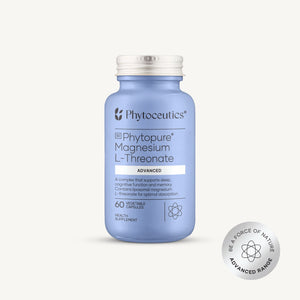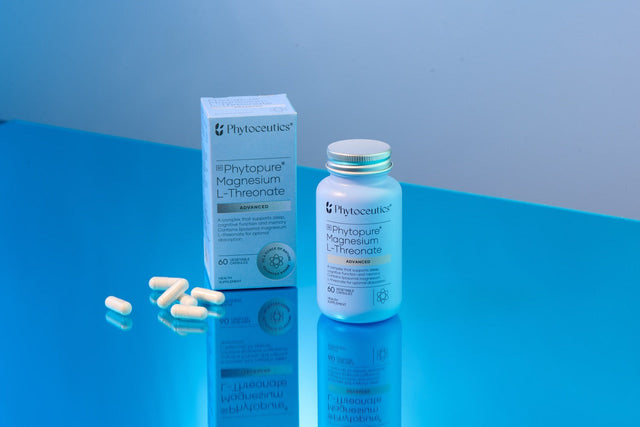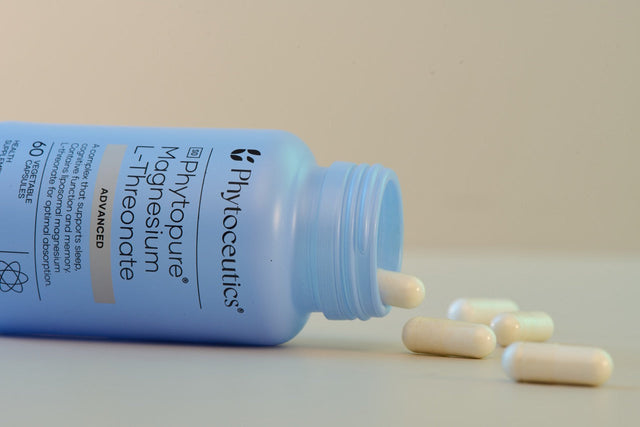Fatigue complicates every aspect of daily life. Even a single night of inadequate or disrupted sleep can lead to irritability, reduced concentration, and diminished energy for normally enjoyable activities [1]. While this is well recognised in adults, children experience these effects just as profoundly [1]. Many parents work hard to ensure their school-aged children get to bed early enough to get a good night’s sleep, but the quality of that sleep is as important as the duration [2].
For the most part, there isn’t a lot that can be done to improve the quality or duration of your child's sleep outside of good sleep hygiene and ensuring your child is in bed for long enough [3].
However, research shows that supplementing with magnesium, specifically magnesium L-threonate, helps encourage deeper, more restful sleep, while improving memory, concentration, and executive function [4].
How Does Better Sleep Impact Cognitive Health & School Performance?
Life is stressful, and children feel it too [5]. Getting a good night's sleep every night makes daily functioning easier, especially school [3]. At school, you’re learning vast amounts of content and new skills every day, and are expected to consolidate and remember them [1]. Most children also participate in sports and activities, all of which have rules, skills, and countless things to remember [1].
During deep sleep, we consolidate memories from short-to long-term storage, reinforcing the neural connections that allow us to retrieve information on demand [1]. Our brains also clear out waste and toxins, helping us feel clear and fresh in the morning [1]. Sleeping well reduces daytime sleepiness, helps reduce mood swings, and increases alertness and energy [1].
How Is Magnesium Used in the Brain?
Inside the brain, magnesium is used for a range of functions, from supporting the central nervous system [2] to regulating neurotransmitters [6]. Specifically, magnesium helps with:
-
Neuroplasticity: Magnesium enhances neuroplasticity, the brain’s ability to make new neural connections [7]. This supports stress management and strengthens working, short-, and long-term memory [2].
-
Neurotransmitter activity: Magnesium acts as a traffic controller for neurotransmitters [2], calming some and boosting others to promote relaxation [1].
In children, magnesium deficiency has also been linked to irritability, restlessness, hyperactivity, and difficulty concentrating [1].
What Is Magnesium L-Threonate?
Magnesium L-threonate is a novel magnesium salt made by combining magnesium with L-threonic acid, a metabolite of vitamin C [6]. It is unique as it crosses the blood-brain barrier [1], allowing it to directly influence neurological function [5].
Inside the brain, it supports neuroplasticity, learning, cognitive function, and memory [1]. It also influences neurotransmitters like GABA and melatonin, helping regulate relaxation and sleep quality [1]. Magnesium L-threonate can also calm neural circuits, reducing anxiety and tension [1].
How Does Magnesium L-Threonate Improve Sleep?
While magnesium L-threonate does not affect sleep latency (how fast you fall asleep), it acts like a neural blanket, calming neural networks and supporting neurotransmitters for a peaceful, ready-for-sleep state [1][7]. Supporting GABA production helps push the body into the parasympathetic nervous system (“rest and digest”) [2][5].
It improves deep sleep and REM sleep [1][7] and aids production of melatonin, the neurotransmitter that prepares our body for sleep [1][2]. Magnesium also reduces muscle cramps and spasms, helping children fall asleep and stay asleep more easily [5].
Tips for Supporting Optimal Sleep Hygiene
While targeted supplementation can be incredibly helpful, it does not replace healthy sleep hygiene and a balanced lifestyle.
For best results, ensure your child has:
-
Limited screentime, especially before bed — blue light suppresses melatonin [8]
-
A consistent bedtime early enough for adequate sleep [3]
-
Physical activity during the day to reduce restlessness [4]
-
A quiet, dark sleep environment, as even small amounts of light disrupt melatonin [8]
Once these foundations are in place, supplementing with magnesium L-threonate can further support deeper, more restorative sleep and overall brain health [1].
For targeted brain and sleep support, Phytopure® Magnesium L-Threonate Advanced is safe for children aged 9 years and older and provides concentrated liposomal Magnesium L-Threonate for optimal bioavailability and absorption.
Support Children’s Sleep & Cognitive Health
Fatigue significantly impairs focus, learning, and daily functioning [9] – a challenge for both adults and children [1]. While consistent sleep is essential, sleep quality matters just as much [3].
By supporting neuroplasticity and regulating key neurotransmitters, magnesium L-threonate helps create the ideal brain environment for learning, memory, emotional regulation, and better sleep [1][2][7].
When integrated into a healthy routine, magnesium L-threonate becomes a valuable ally for growing children, helping them navigate school and life with greater clarity, calmness, and cognitive strength [1][2][5][7][9].







